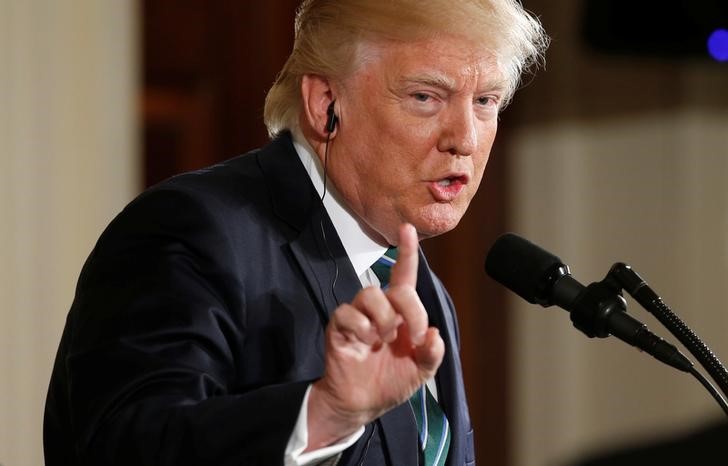By Lisa Lambert
WASHINGTON (Reuters) - The Trump administration took an unusual step on Friday in its efforts to defang the U.S. financial consumer watchdog created after the banking crisis, with the executive branch of the federal government telling a court that one of its own agencies is violating the U.S. Constitution.
The Justice Department filed a brief opposing the Consumer Financial Protection Bureau's appeal of a ruling that its single-director structure does not hew to the constitution.
The decision that the bureau appealed also said the president should have the power to fire the agency's head at will. Under the 2010 Dodd-Frank Wall Street reform law that created the CFPB to protect individuals against fraud in lending, the president can only fire the agency director for cause.
The CFPB director is currently Obama appointee Richard Cordray, hailed by consumer advocates for taking action against payday lenders, credit card companies and debt collectors. Many bankers and Wall Street executives, along with Republican lawmakers, have said his authority to both write and enforce regulations is too wide.
The agency can represent itself in court cases except for those before the Supreme Court, putting President Donald Trump in a rare predicament: he cannot direct the Justice Department to withdraw the appeal.
Instead, the Justice Department could only file a brief supporting the CFPB's opponent, mortgage company PHH Corp.
"A single-headed independent agency presents a greater risk than a multi-member independent commission of taking actions or adopting policies inconsistent with the President’s executive policy," the Justice Department argued, saying a commission must compromise, while a single director does not answer to anyone.
The department also said that because CFPB directors hold five-year terms, a president may not get a chance to appoint someone who agrees with him. Cordray's term expires next year.
The department argued the U.S. Court of Appeals for the District of Columbia Circuit should allow Trump to fire the director at will, upholding the original decision reached by a three-member panel of its judges in October.
No U.S. president has ever dismissed an independent agency's director for cause. Republican lawmakers say Cordray's history provides Trump with cause for dismissal, although some are seeking a legislative path to fire him.
The rare inter-agency legal fight was widely expected.

After Trump's election win, some states' attorneys general and Democrats in Congress sought permission to represent the CFPB in the appeal, anticipating Trump would try to undermine the agency.